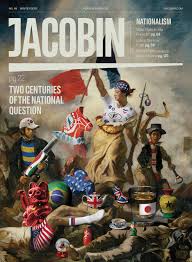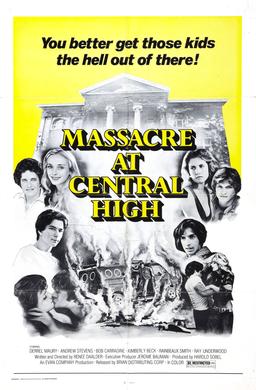So give me a break, I just read some Le Carre, but I think that there was some kind of rapprochement that existed between the West and the USSR throughout the Cold War that really enabled the Chicago School brainrot to take hold while there was no similar effort to establish a similar relationship with China. It might be trite, but the Oriental-Occidental mental block probably prevented the West from even considering capitalist ideological infiltration.
Tofu_Lewis
I just responded to a one-month-old-comment of my own :-\
A few years ago I went to Tempe to visit a friend and every-time we ventured outside of Tempe I was confronted by Yakub's most devilish creations.
The law-brain-nerds at r*ddit have been debating the use of AI in the legal professions and some have made the earnest argument that: "Well yes it fabricates cases and lies to you, but it's a great tool to use as a jumping-off point!" Staggering to behold.
These bozos never read Heinlein's Revolt in 2100 collection and it shows.
Phoenix is a contradiction.
The desert is beautiful, but the people inhabiting that space are....
This city should not exist, it is a monument to man's arrogance.
Actually it was great. But I acknowledge your incorrect opinion.
The success of the 9/11 attacks cannot be understated (see Jean Baudrillard's The Spirit of Terrorism).
After a supposed victory over an ideological opponent (USSR), the US engaged in building the "rules based international order" and, after a frenzy of neoliberal export (Bosnia), began to show rot. The cultural angst of the late 90's - unintentionally enunciated in Fukiyama's "End of History" - reflected the hollow promise of the capitalist vision.
The 9/11 attacks forced the contradictions of this aimless and self-destructive impulse into overdrive and spawned an unfocused frenzy of jingoism which served to mask the profound disquiet festering at the core of the American psyche.
That ideological bankruptcy has forced into focus the fundamental inability of capitalism to build a resonant faith in structural stability and justice.
I know this is the most tired of tropes but ... Wiemar liberals reborn.









Whenever Voyager comes up, and especially when Janeway comes up, I feel obligated to share my unpopular opinion: the introduction of 7 of 9 and the Borg totally fucked up the show.
Season 1 is pretty rough (as per usual for Star Trek); Season 2 is better and has some real bangers mixed in with a couple stinkers; Season 3 really hits a stride and all the cast have good chemistry and lots of good episodes .... then they introduce 7 of 9 and the Borg and it goes off the rails. Season 4 is incredibly bad, and it's super obvious that Kate Mulgrew hated the introduction of 7 of 9. Janeway's character starts becoming EXTREMELY inconsistent and the writers just rehashed the plots to a bunch of Data's storylines. Seasons 5 and 6 are alright (but some kind of magic and chemistry of the early seasons are gone), and Season 7 experiences the same dip in quality due to general fatigue of everyone involved.
Season 3 really was the peak (before Borg intro at the end), where all the crew's characters and their relationships are really getting fleshed out, but the writers just stopped giving a shit about all of that development to play with their shiny new toy (7 of 9).
Blame it all on the booba - the showrunners saw flagging ratings and wanted the neckbeard viewership at the cost of any kind of internal consistency (they dropped the "lost in space scrounging for supplies" narrative, the science-babble went through the roof, and all problems became trivial in the face of 7 of 9's super-brain and/or nanobot-blood).
I still love Voyager because it is very comfy, but I will always maintain that it could have been so much better without the Borg and 7 of 9.
*I should note that there were a couple of earlier Borg episodes that were awesome, like the detached Borg colony that makes a new hivemind on a planet